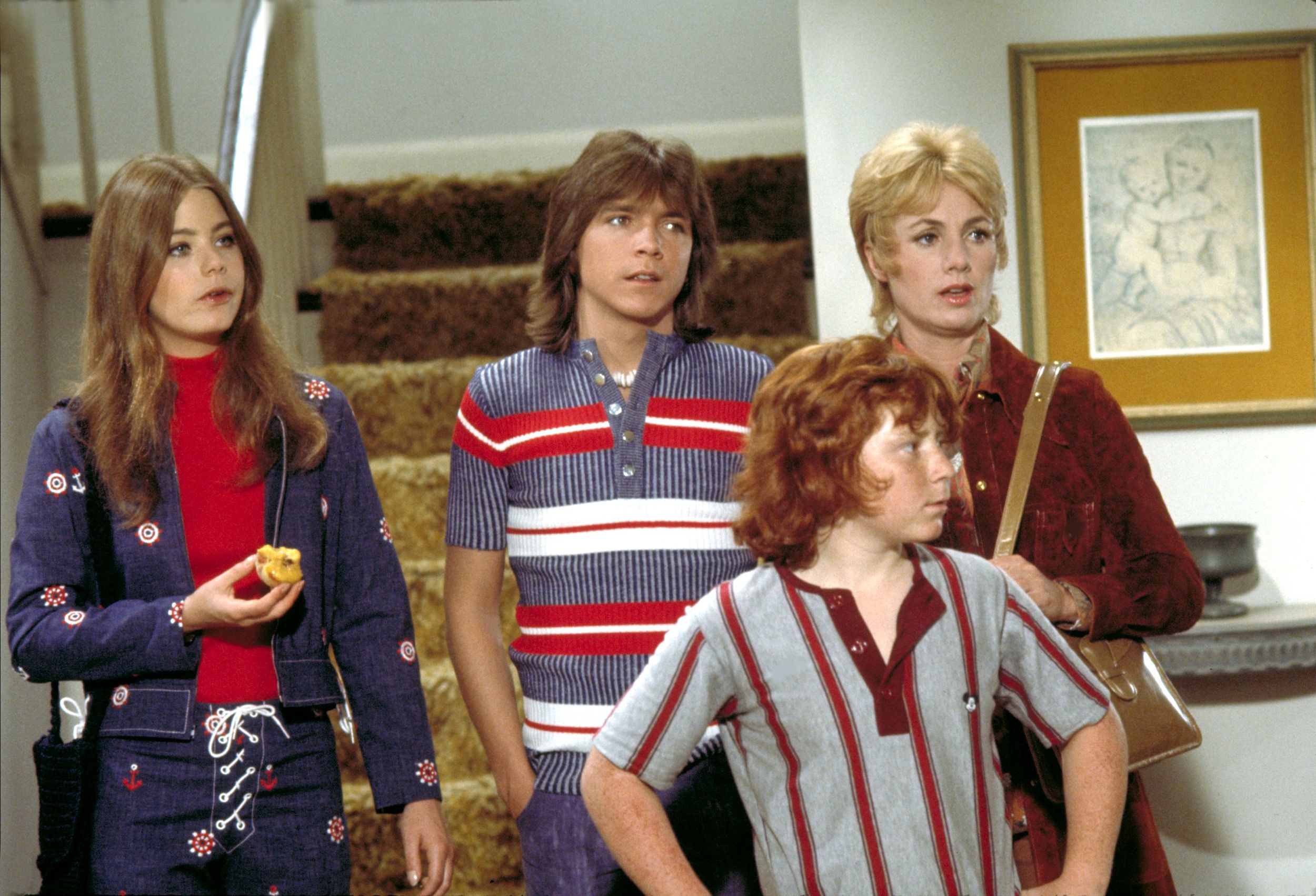
A bright, street-wise shuffle where TV fantasy brushes up against Detroit reality—and still finds joy in the groove.
Start with the anchors. “Bandala” arrived on The Partridge Family Album in October 1970, written by Wes Farrell and Eddie Singleton, clocking in at 2:27, and cut at United Western in Hollywood. On the LP it sits early—side one, track three—framed by the debut’s radio-ready pop. The credited studio corps is that familiar Los Angeles A-team—Hal Blaine (drums), Joe Osborn/Max Bennett (bass), Larry Knechtel/Mike Melvoin (keys), and a three-guitar phalanx of Dennis Budimir, Louie Shelton, and Tommy Tedesco—with Wes Farrell producing. Those facts matter because they explain why a TV family band could sound so taut: these were first-call players building a brisk, Motown-tinted pocket around David Cassidy’s lead.
Then, almost immediately, the song found its story on television. In the Season 1 episode “Soul Club”—first broadcast January 29, 1971—the Partridges are mistakenly booked into a struggling Detroit venue run by brothers played by Richard Pryor and Louis Gossett Jr. The number they bring to that room is “Bandala,” and the performance becomes the episode’s beating heart: a lip-synced slice of bright pop-soul planted in Motown’s backyard, offered without smugness or fear. If you remember seeing that as it aired—or decades later in reruns—you remember the feeling: this show could be as feather-light as a sitcom, but for three minutes at a time the music stood up on its own.
What does the record feel like? A quick step, not a sprint. The drums walk, the rhythm guitars chank in close quarters, and the keyboards add a clean sheen that lets the melody ride. Cassidy leans into the consonants with youthful brightness; the phrasing doesn’t belt so much as beam, which is exactly what this lyric needs—a chorus you can catch on the first spin and carry into the kitchen. Some fan sources have even suggested the vocal was slightly sped up in the mix to keep that boyish lift; whether or not you buy the lore, the finished track certainly wears a youthful edge over a grown-professional band.
Context sharpens appreciation. On the album, “Bandala” lives between “Point Me in the Direction of Albuquerque” and “I Really Want to Know You,” and its stance is different from both—less confessional than the ballads, punchier than the sun-pop. You can hear Farrell’s producing hand aiming for a light pop-soul handshake rather than a wall of sound. The arrangement leaves air around the hook; nothing is there to show off, everything is there to keep the pocket smiling. That’s why older ears tend to keep this cut close: the record respects the dance floor and the living room equally.
The episode setting gave it another layer. Dropping a shiny TV band into a downtown Detroit club could have played as a cheap gag; instead, “Bandala” lands like an honest attempt to meet a room where it lives. The plot (Temptations expected; Partridges show up) is sitcom machinery, but the performance isn’t a punchline. It’s a little pop-soul postcard—brighter than the neighborhood deserves, maybe, but sincere—and that sincerity is the point. Decades on, write-ups of the episode still single it out, not just because of Pryor’s presence but because the number works. The song travels.
Listen closely and you’ll hear the team’s quiet craft. Blaine’s time is exact without being stiff; the bass keeps a short leash on the harmony so the chorus can pop; the guitars flick light at the edges of Cassidy’s lines and then step back. It’s the working grammar of Los Angeles pop in 1970, and it’s why the track can be both TV-ready and record-strong. On paper, it’s just another album cut on a debut that would be defined forever by “I Think I Love You.” On tape, it’s something rarer: a compact, good-natured crossover of California session polish and Detroit aspiration, built to make your shoulders move before the first chorus lands.
For many of us who met it the first time on a Friday night TV glow, “Bandala” also carries a small lesson about kindness. The lyric isn’t a sermon; the groove is the invitation. It says what a lot of us have learned to say more quietly with age: let the music make room, and the rest will follow. That’s the soft power of the Partridges at their best. Not bombast; manners. Not swagger; welcome. A TV family steps into a tougher room, plays a song with a little city dust on it, and for three minutes the gap closes.